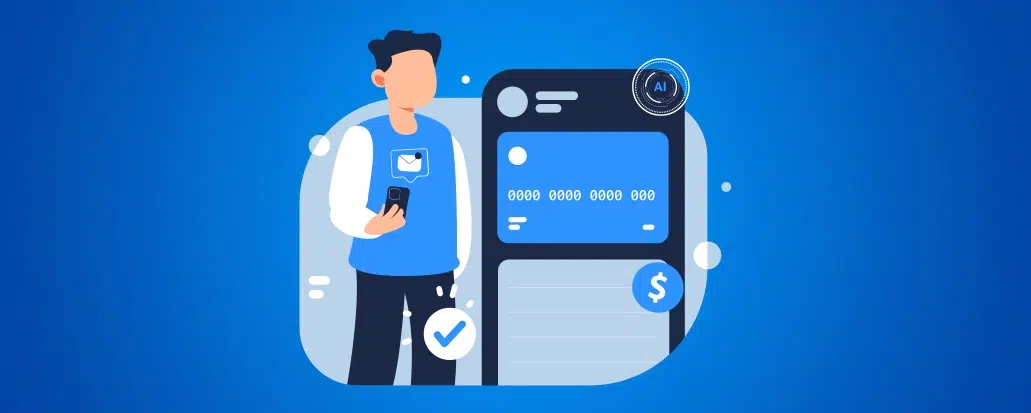Private Banking, Metaverse, and AI: How Technologies are Changing the Banking Sector
New technologies are bringing significant changes to the banking sphere. Implementation of progressive technologies is changing the methods of providing financial services.
The main drivers of this transformation are:
- Internet of things (IoT) – a network of interconnected devices;
- Metaverse; and
- Artificial intelligence (AI).
These technologies optimize the user’s experience and radically improve the interaction of banks with clients.

The Internet of Things ensures a new level of cooperation with the clients via integrated devices, platforms, and clouds. The metaverse promises creation of virtual spaces for providing services to clients. Artificial intelligence is capable of offering personalized financial recommendations and optimizing operational processes. Together these technologies are building a new reality in the banking sphere that requires adapting to and taking an innovative approach.
Internet of things in banking and finance
The IoT has reached maturity in the financial service sector and become an inalienable part of modern banking. It has brought new opportunities to financial institutions.
The IoT is mostly integrated with such electronic devices as:
- Mobile phones;
- Notebooks;
- Smart watches.
These devices simplify clients’ interaction with banks making banking services more accessible and easy to use.
One of the features of the IoT used in the financial sphere is the possibility to integrate financial products with the user’s interface. This allows banks to increase their profits by offering services via clients’ electronic devices. This sort of integration increases loyalty on the part of the clients and they start using banking products more often. One more key opportunity that the IoT offers is analysis of the user’s data that allows making conclusions about the user’s preferences and behaviors.
These data allow banks to make personalized offers that match individual customer’s needs. Personalization improves user’s experience and increases the efficiency of marketing campaigns. It allows providing private banking services to wealthy customers. In particular, the popularity of cryptocurrency-related services has been growing in recent years.
Personalized services are also offered in the following spheres:
- Asset management;
- Tax optimization;
- Inheritance planning.
Private banking services are highly efficient because they are based on a deep understanding of the client’s goals and preferences.
Use of IoT in the financial sector
The use of the IoT in the financial sector makes banking services easily accessible. The technology allows offering more personalized and more secure solutions to the clients. In the course of technological development, banks and insurance companies find new uses of IoT and improve the quality of their products and services.
Banking
The IoT is changing the approach to banking operations because it simplifies and accelerates payment processes.
For instance, such banks as Societe Generale and NatWest have introduced biometric systems to confirm transactions. They shorten the payment processing time and make transactions more secure.
Walletmor Company offers implantable payment chips that allow making transactions with a wave of the hand. According to some research, around 10% of mobile banking application users in Europe are prepared to use biometric systems for everyday payments.
Insurance
Insurance companies are also actively using the IoT because it allows them to analyze various data in real time. For example, the use of telematics devices in cars allows analyzing the driving style and adapting the price of the insurance policy in accordance with the individual characteristics of the driver. This improves the accuracy of pricing and stimulates drivers to drive in a safer manner. According to a GlobalData report, more than 30% of insurance policies sold in the USA contain elements of the IoT used for dynamic pricing and service personalization.
ATMs and payment terminals
Banks are also exploring the opportunities of using the IoT for improving the efficiency of ATMs and payment terminals. For example, ATMs using the IoT technologies can offer a large list of services to the clients including deposits, cash withdrawal, and even financial consultations via video conferencing applications. Because clients can interact with the machines, they feel more inclined to use the banking services that they offer.
Metaverse in the banking sector
The Meta universe, or metaverse for short, is an integrated virtual space where users can interact with the digital world with the help of avatars. This brings new opportunities to financial institutions as far as personalization of banking services is concerned. Banks use the metaverse to give consultations, to conduct training sessions for clients, and to present new products in an interactive form. According to the data of MarketsandMarkets research company, the metaverse technology market is going to grow to US$ 800 billion by the end of 2024.
Banks are starting to explore the metaverse as a means of improving interaction with clients and an opportunity to digitize private banking services. For example, JP Morgan has opened a ‘branch office’ in the metaverse called Decentraland. Now the bank clients can ‘visit’ the bank office without leaving the comfort of their homes. In other words, they can obtain financial services in a convenient way. Virtual ‘branch offices’ attract young users very much because they feel comfortable in the digital world.
Risks and challenges
At the same time, the introduction of the metaverse into the banking sphere is associated with some problematic issues. Challenges related to personal data protection remain the most serious ones because virtual spaces can be vulnerable to cyberattacks. There are also technical as well as regulatory challenges associated with the integration of virtual and physical banking services. Banks need to find a balance between innovations and security of their services.
Nevertheless, the opportunities that the metaverse brings are capable of radically changing the ways in which banks interact with customers. The use of modern technologies can help banks become ‘closer’ to their clients. The development of these technologies requires a strategic approach and investments in security protection but they look promising indeed.
How AI helps improve the quality of banking services
Artificial Intelligence (AI) is penetrating the banking sphere in an active way. Examples include chatbots and complex algorithms of financial consultations.
According to Accenture Company, more than 80% of top bank managers see AI as the key component for achieving their strategic goals. The technology allows improving the quality of banking services and facilitates asset and risk management. Banks that use AI to analyze clients’ data can offer more personalized and more beneficial services.
AI-based analytics allows banks to deeply understand clients’ needs, optimize their offers, and increase clients’ satisfaction. According to IBM, AI-based systems reduce the time of making credit decisions by up to 75%. This is possible because large amounts of data are analyzed automatically. In addition to automatic data processing, AI allows minimizing the risks.
AI is also used to forecast the financial behavior of the client. This allows preventing fraud and optimizing risk management strategies.
The role of AI in the banking industry is certainly going to grow in the future. Experts expect that investments in AI will reach US$ 11 billion by 2025.
AI is going to play a decisive role in the following spheres:
- Personalization of banking services;
- Issuance of loans;
- Asset management;
- Fraud prevention.
The use of AI will let banks improve their performance and offer services of a better quality. Experts forecast a rapid growth in the sphere of private banking services in 2024.
The expansion of AI in personal and corporate banking is a significant step forward in the automation of banking processes. According to Deloitte, more than 50% of financial institutions already use AI for improving their performance. AI helps with client segmentation, development of individual investment strategies, and optimization of portfolio management. To make full use of these opportunities, businesspeople from around the world prefer opening accounts with foreign banks and payment systems. Our experts will gladly help you open a foreign bank account and support you at every stage of the process.
Ethical concerns
The introduction of the IoT and AI into the banking sphere raises important questions about confidentiality protection and security of personal data. The data that smart devices hold and analyze have to be efficiently protected, which requires special efforts. If the data are insecure, it may lead to financial losses and loss of trust on the part of the clients. Therefore, banks have to use advanced encryption technologies and constantly monitor the security of automatic systems.
The use of biometric data also raises ethical and security-related questions. Biometric technologies (face or fingerprint recognition) ensure security but they also pose risks of abuse and leaks of sensitive information. From the ethical point of view, AI should adhere to the principles of justice and non-discrimination when recommending credit decisions. Financial institutions develop transparent rules for the use of such technologies to avoid potential abuse.
The regulatory challenges also play an important role in the introduction of the IoT and AI in the banking industry. Banks have to conform to the strict norms of data protection spelled out in such documents as General Data Protection Regulation (GDPR) Regulation (EU) 2016/679 in Europe and California Consumer Privacy Act (CCPA) in the USA. These documents require that banks process data in a transparent way and give clients control over their personal information. The necessity to conform to the norms requires considerable efforts and investments in security and data management systems.
Conclusion
Technological innovations such as the IoT, metaverse, and AI are changing the banking industry significantly. These technologies improve the quality and accessibility of banking services. They also allow banks to personalize their offers and increase the level or security.
Financial institutions have to adapt to new trends and innovation very fast if they want to remain competitive. Our experts will be delighted to help you register a foreign company, open a foreign bank account, and complete all the tasks associated with these processes.
